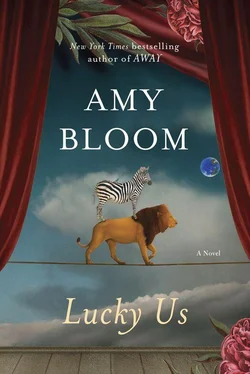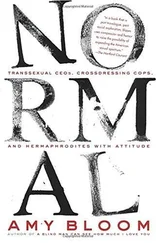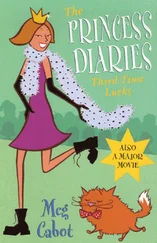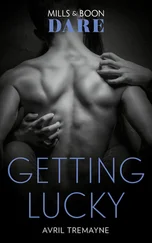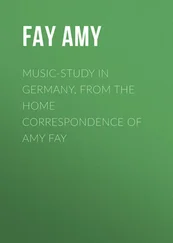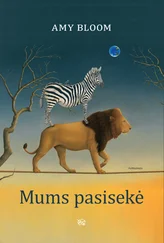
AND IRIS WAS WATCHING Reenie Heitmann. Irene Lombardo Heitmann. Iris sat in the Torelli kitchen for six months, pretending she wanted to learn all about roasting chicken and the many interesting things you could do with green beans. She brought the Torelli girls into the kitchen and made cookies with them. She sat at the big table in the middle of the kitchen, after dinner, and offered to dry dishes or bring Reenie a glass of water, and if I came in for a snack, Iris looked daggers at me and I moseyed along. I couldn’t see it, about Reenie. She reminded me of one of the ladies on a spaghetti-sauce jar, but with a better figure. To give Iris room, I stayed in Brooklyn a couple of nights a week, on one of the couches, and once in a while, if Reenie went home early, Iris joined us. And talked about Reenie. She talked about what a special person Reenie was, and what a great cook, and what a beautiful soul, and her pretty eyes and the beauty mark right near her left eye and how unhappy Reenie was with her husband, Gus, because they couldn’t have a baby, but how good she was to him. Bea and Carnie didn’t say a word about any of it, and before it got too late, Francisco would walk us to the subway. One night he said, Iris, make a move, or move on. You’ve officially become the most boring dyke in America.
Iris listened to him. When Gus came for Reenie after dinner and the washing up, Iris told them that we were bored silly in the evenings and wanted to get away from the Torellis. (There was no reason to get away from the Torellis. They gave us platters of leftovers from Reenie’s four-course dinners, they put a washing machine in our house, and they made Catherine and Mary go to bed at eight. In the three years we were there, they never expressed an opinion about what we did after hours and they never knocked on the carriage-house door in the evening.) Iris said to me, Gus is a nice guy — spend some time with him. Play cards.
Gus Heitmann was what people called a man’s man. He fixed things and he had a deep laugh. He looked like he could carry you out of a burning building and he looked like the kind of man who would go back in to get your poodle. And even though he made fun of his own looks (Gable’s ears and Durante’s nose, he said), I liked his face. He looked like a big, wise animal, the kind that saw you before you saw it. There were no card games Gus didn’t play: poker, five-card stud, blackjack, gin, and even the crazy ones like Egyptian cut-ups and palace of my fathers, which I still don’t understand, except that you can hold twelve cards at any given time. Reenie and Gus drove us to their house on the other side of the train station once a week, and the four of us sat around and played cards and had a couple of beers. When Reenie wanted a late dinner she didn’t have to cook, Gus made spaghetti and meatballs, German-style, with cream and dill, and he did the dishes too. He was nice to Reenie, and always polite, but even I could see it wasn’t love. I asked him once how they met. We were both at a dance in the city, he said. She didn’t like the guy she was with, and I didn’t like the girl, so in the middle of the dance, I said, Maybe we should switch partners. So we did. The other couple, they’re married, three kids. Woulda been nice, he said.
When Reenie left the room, Iris’s face fell. Gus’s face didn’t change a bit.
After a couple of beers, Reenie would start to talk about how she wished they could have babies, or that she was tired of cooking Italian all the time, and then she’d say her feet were killing her. Iris would give me the eye and we’d split up into Iris and Reenie, Eva and Gus. Reenie and my sister would go outside for a smoke in the backyard or Iris would take Reenie into the bedroom and rub her feet with almond oil and then Reenie would give Iris a manicure and peace would prevail. Once in a while, Reenie would call out, How you guys doing out there? and Gus and I would say, We’re fine. Sometimes Gus said, Enjoy your hen party, but he said it in a nice way. Gus and I would play cards for another hour without them.
Gus asked me if I was interested in cars and I said I wasn’t. He asked me if I was interested in people and I said that people were pretty much the only thing I was interested in, and he told me stories about his customers. Sometimes he’d say, What do you make of this one? And he’d tell me about the widow lady with the bad carburetor and her three sons and the fact that the third son wasn’t hers — he was the child that her husband had with the lady’s sister, before he passed away — and even so, that was the child the lady loved the best. He told me about the priest with the pale-blue Buick and the soft brakes and his girlfriend, who stood across the street from Gus’s garage every Wednesday at four and always acted like they had run into each other by accident. I said I thought that maybe the man wasn’t really a priest in that case, and Gus said, He’s a man, kiddo. Gus asked me, Do you want me to tell you he wasn’t a priest? I told him that I appreciated hearing the truth about things and Gus said that I shouldn’t think that the truth was just ugly.
One time, he asked me how old I was and I said almost sixteen and Gus put his hands over his face. When he looked at me again he took my hand and turned it palm up. Let me tell your future, he said. You’re not going to be working at the beauty parlor for the rest of your life. You’re going to meet some boys here and there, and he pretended he was looking very closely at my palm, so his nose was almost touching it. I could feel his breath in the valley of my palm. Not as many as I’d expect, he said, but boys can only think with one head and we’re slow learners, as a group, so no one should be surprised about that. And then you’re going to meet a good guy, a stand-up guy, a guy who loves you like crazy, and you’ll know he’s the one.
I put my other hand palm up too, in case there was more. Yeah, he said, you’ll know he’s the one because when he says he’ll do anything for you, he means it. Don’t you fall for the big hearts and flowers, acting like it’s the movies. Bunch of bullshit, he said. Pardon me. You want the guy who’ll get your medicine in the middle of the night, even in a blizzard, even after twenty years. You want the guy who shows you every day, shoveling the walk, carrying your groceries, shows you how much he loves you. It’s not about talking the talk, Eva. You must have met my father, I said.
On the drive back home, Iris would curl up in the backseat and Gus would ask me about Bea and Carnie and La Bella Donna (he said it was his favorite soap opera) and he’d talk to me about college. One time he said to Iris, You don’t think Eva ought to be going to college, smart as she is? Iris said that it was entirely up to me.
THE LAST NIGHT WE were over, Reenie and Iris had been in the backyard for a long time. Gus laid down another winning hand and told me I was down a thousand points. He asked me if I wanted a beer and I smiled. He said, They treat you like a grown-up. Why should you get all the grief and none of the fun? We split a beer and then he yawned and asked me to get Iris, so he could drive us home.
I went out to the backyard. It was a perfect spring night. The air had just gotten warm and I could stand outside in just my shirt and blue jeans and feel the breeze and the damp grass. Even in the dark, things were green, from top to bottom. I couldn’t see Iris and Reenie and I didn’t want to yell because the people next door had a baby. I crept around the edge of the yard, near the boxwood, like I had when I was a kid, playing Indians. I could see their bodies heaped together in the darkest corner of the yard. The streetlamp touched Reenie’s white hair ribbon on the grass. It touched Iris’s white socks and Reenie’s white bra. Reenie must have seen me creeping, because she screamed and then she muffled it.
Читать дальше
